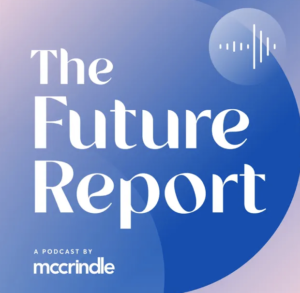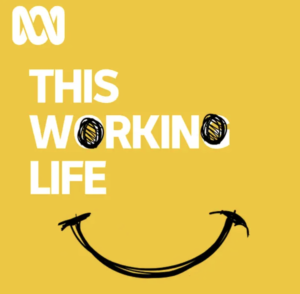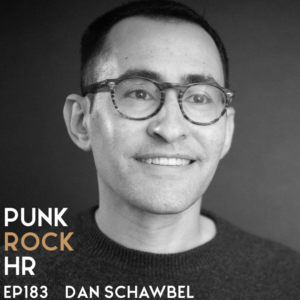Want to engage in some compelling summer reads and podcasts, and learn something along the way? We’ve got a great list of content recommendations for HR.
Looking to sink your teeth into a good book this summer holiday? Or want to plug into an engaging podcast?
We asked AHRI members to share their best work-related content recommendations. These podcasts, books and articles will both entertain and inform you, and inspire you to take on some big-picture thinking in the new year.
Building collaboration and trust in the workplace with Dan Schawbel (podcast)
Recommended by: Deepali Dholepatil CAHRI, Manager Outsourced Consulting Services, Capital Recruit
In this episode from Punk Rock HR, Dan Schawbel, a New York Times bestselling
author and Managing Partner of research and advisory firm Workplace Intelligence, discusses the importance of listening to employees and building genuine connections that will encourage employees to rally behind a company’s vision of success.
Not long into the pandemic, Schawbel interviewed the CEOs of Netflix and Whole Foods as part of a study looking into employee voice and their feelings of trust. He discovered that employees in the office are more trusted than remote workers.
Schawbel and podcast host Laura Reitman discuss the foundations of building trust, and how we can take these learnings into the workforce of the future, whether that’s remote, face-to-face or hybrid.
What it taught me:
HR will need to continue creating a culture that facilitates trust in hybrid work environments. Being onsite provides greater access to peers and leaders, making it easier to establish trust and rapport, and demonstrate capability.
For HR to be successful, it needs to examine data to ascertain what flexibility will look like in a constantly evolving work environment. We need to keep experimenting to establish best-practice measures.
HRM follow-up content: Read HRM’s article on the four different types of listening that HR professionals need to master and HR’s guide to facilitating connection in a hybrid workforce.
The Future Report by McCrindle (podcast)

Recommended by: Desleigh White, Country HR Manager, Hitachi Energy
Leaders, HR professionals and employees would all benefit from listening to this podcast.
In each episode, Ashley Fell, Director of Advisory at McCrindle, interviews an expert about a current topic or work trend related to social research.
A number of the episodes deal with how to manage employees of different generations in the workplace. The discussions have been interesting and insightful, and helped me to better understand people’s differing approaches and expectations.
What it taught me:
An episode about kindness strengthened my commitment to focus on the power of kindness – towards others and myself.
An episode that explored how people are reconsidering their priorities as a result of the pandemic, and why major events in general cause us to re-evaluate our lives prompted me to reflect on my own sense of meaning and purpose.
It made me think about how my work affects my wellbeing, motivation and mental health, and how to regain meaning at work when I feel it could be slipping away.
HRM follow-up content: Read HRM’s article on finding meaning in your work and designing work around tasks that employees love.
This working life (podcast). Episode: “I lost sleep; I’d vomit before going to work.” The human cost of bullying in the workplace) by Lisa Leong

Recommended by: Michael Plowright, Director, Working Well Together
For any workplace leader or HR professional wanting to gain insight into the systemic causes of workplace bullying and how to prevent it, this podcast episode is for you.
In Australia, we’re fortunate to have some world-leading researchers in workplace bullying. Professor Michelle Tuckey, from the University of South Australia, shares her fascinating insights in this episode as she discusses workplace systems and culture as being primary causes of bullying.
What it taught me:
This podcast transformed how I look at workplace bullying. Historically, we’ve considered bullying at work as an interpersonal issue, but so often it starts with systems that don’t work effectively.
I now look for, and focus on, solutions that explore two key aspects: How do we fix the immediate problem between people in the workplace while ensuring everyone’s safety and maintaining performance? And how do we fix the long-term problem to prevent bullying from occurring again in the future?
I love how this episode prompts us to ‘lift the rock’ in our metaphorical workplace gardens and look at what is lying underneath in order to arrive at better solutions and healthier workplaces.
HRM follow-up content: Read HRM’s guide on managing an upward bully and weeding out the bad apples in your team.
HR’s reading list
If it’s a good book that you’re after, here’s a list of leadership book recommendations from AHRI members.
The Legacy, by James Kerr.
Recommended by Gregory Lamey, CEO Forensix Group and HR expert.
This book examines the business lessons from one of the greatest sporting teams in the world: the All Blacks. It’s less about rugby and more about leadership, culture and what made the team so great.
Kerr outlines the team’s 15 mantras and the principles that guide their success. One of these is ‘no d*ckheads’. This strikes at the heart of team culture.
When a player makes the team, they’re given a small black leather-bound journal. Half is filled with pictures of past jerseys and the 15 rules, the other half is blank – waiting to be filled by the players. In my opinion, this book is essential reading for all leaders.
Man’s Search for Meaning, by Viktor Frankl.
Recommended by Gauri Maini FCPHR, Founding Director, The Culture Advantage.
This book was one of the earliest influences on my work. It taught me about the power to choose our response in any situation. We know that we are at our best when we are intrinsically motivated.
I learnt that when I am able to create the space, even in seemingly tough situations that may be outside my influence, I can take actions that are more likely to have the impact I want.
I continue to learn from this book and have found it really powerful to synthesise these learnings with evidence-based frameworks and models in my work with leaders and organisations more broadly.
Five Dysfunctions of a Team, by Patrick Lencioni.
Recommended by Cassandra Hatton EGM Strategy, Innovation and Organisational Development, St Vincent de Paul Society Victoria.
Not only does this book hold much leadership wisdom; it’s also an easy and enjoyable read. It’s written as a parable and each chapter ends on a cliffhanger. (Move over Netflix. I’m binge reading, not watching!)
Lencioni provides a framework for building a strong team and gives practical tools you can use immediately with your team. A key lesson was that fear of being vulnerable prevents team members from building trust with each other.
As a leader, learning to be vulnerable can be of greatest service to your own growth and your team’s success.
Where to Begin, by Cleo Wade.
Recommended by Sarah Queenan FCPHR, Managing Director, Humanify HR Consulting
This book is an unconventional leadership text (it’s written as short poems) that helps to make sense of our crazy world. In my career, there have been times when I’ve felt disappointed and this book helped me to connect with my purpose, offering a place to start when dealing with complex HR challenges.
The poems highlight the simple yet critical elements of leadership – a few that stood out to me were: “There is not a single conversation that kindness cannot make infinitely better” and “We just have to be brave enough to care.”This book inspires some of the material included in the program that I run to teach leadership to HR leaders.
The People Pill, by Ken Wright.
Recommended by Carl Roberts CPHR HR Business Partner, Queensland Corrective Services
The People Pill is a straightforward and enjoyable read which provides practical solutions to everyday people problems faced by leaders.
Each chapter focuses on a particular leadership challenge, and I found the simple structure of each one – which steps through symptoms, diagnoses and cures, as well as case studies and ‘lab work’ sections – easy to follow, understand and therefore apply to my own leadership.
I stumbled across this book early in my HR career and have utilised it to become a better leader myself, and to advise, guide and coach others to do the same.
Getting to ‘Yes and’ by Bob Kulan.
Recommend by Eric Vigo, Chief Improvisation Officer, Rebotr
Functional work cultures have built-in care for others and acceptance of each other’s mistakes, ideas and outlooks. The people in them don’t necessarily feel the need to agree with each other, but to accept people’s point of difference.
This results in a less defensive, more collaborative workspace. As Kuhlan writes, “Create a culture where people aren’t afraid to fail, openly share ideas, instill trust, and inspire an attitude of openness.
Manage your emotional culture by Sigal Barsade and Olivia A. O’Neill, Harvard Business Review (article).
Recommended by Lorissa Garcia, Founder and Culture Crafter, Assembly Culture.
This article changed the way I think about culture. Emotional Culture is a field that looks to how people feel (and don’t want to feel). We know values are the anchor for culture, and behaviours sit behind the values, but what’s been missing until now is understanding the way people feel.
The insider’s guide to culture change by Siobhan McHale.
Recommended by Cecilia Jones FCPHR, Founder and Director, Intelligent People.
This book is a great how-to guide. It walks the reader through the power of culture to affect business outcomes and diagnoses the current environment, fostering change leadership in everyone, systemic alignment and dealing with blockers. It’s a great addition to your HR library and has encouraged me to think about the change leader in all of us.
What’s your go-to leadership book or work-related podcast? Let us know in the comment.



This is great, I’m always looking for a good podcast, so I’m keen to hear what others are listening too. I’ve also jotted down the books, so I can add them to my library.
How to Listen by Oscar Trimboli, is great and brings a new life to communication, connection and engagement. Highly recommend